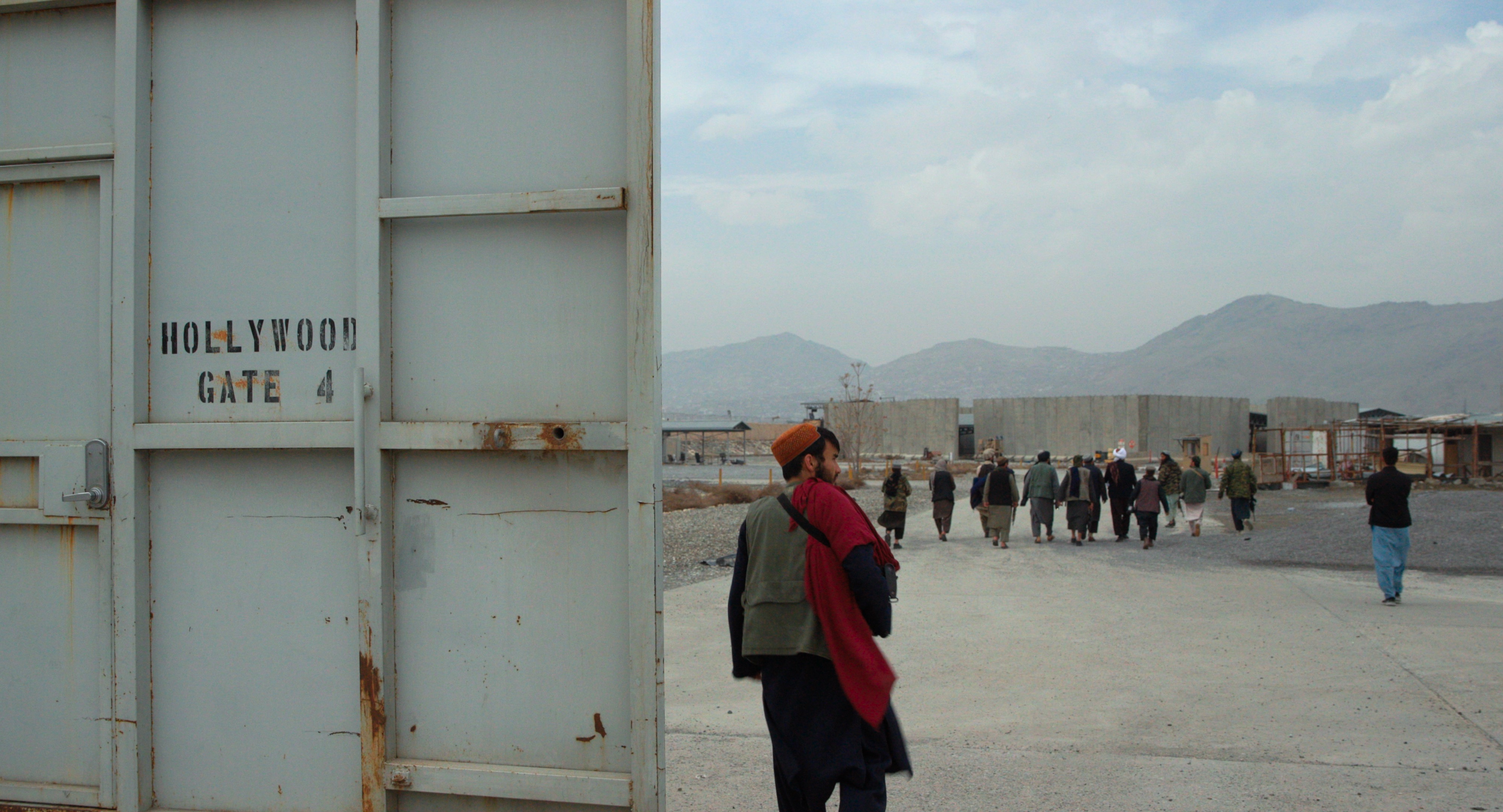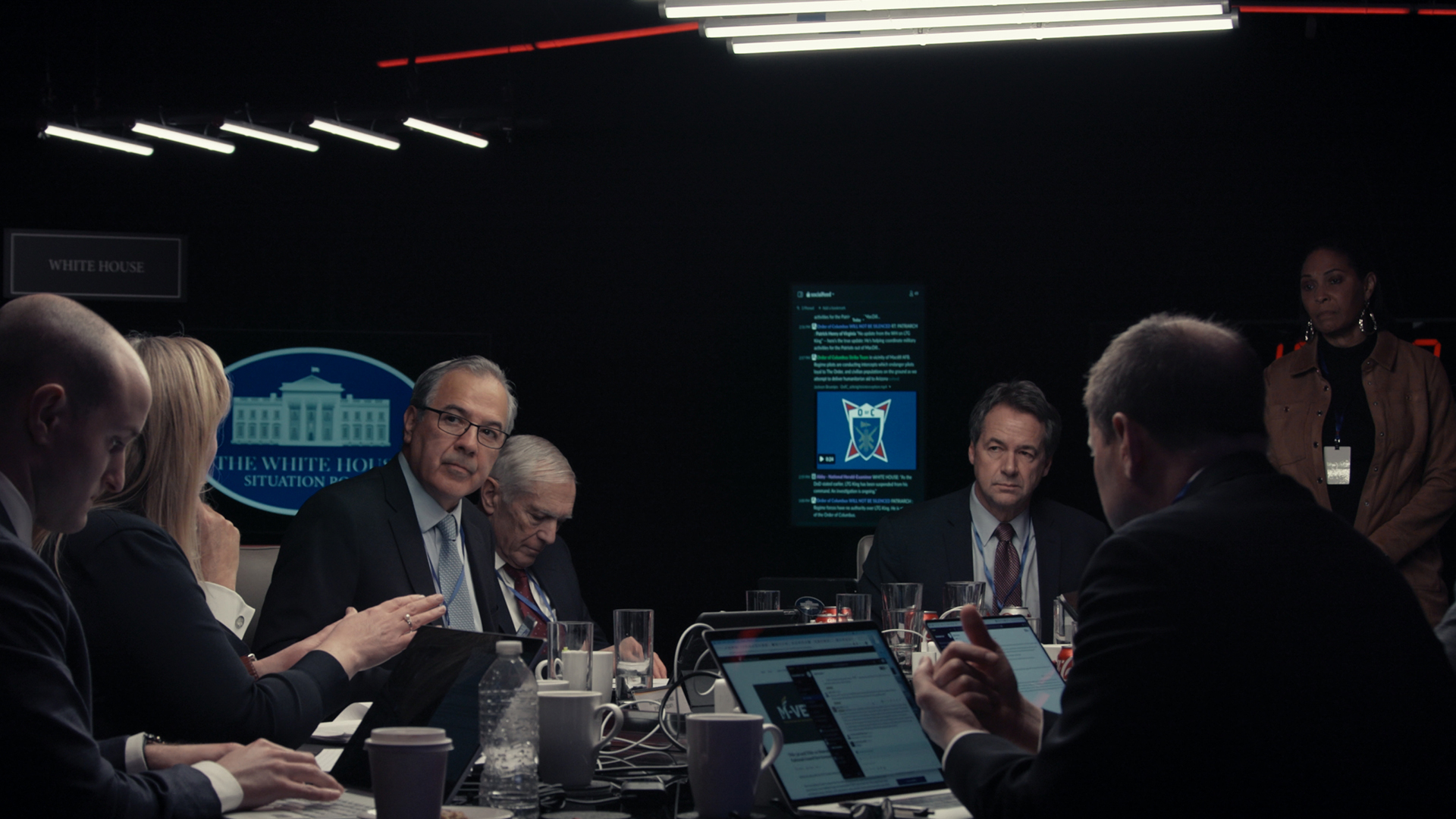

Daughters. Courtesy of Netflix
Daughters
Daughters follows the daughters of imprisoned fathers as co-director Angela Patton’s organization brings daddy-daughter dances to a D.C.-area prison. The measured sorrow of the film is a heartfelt reflection of the tragedy of the impacts of imprisonment. Gorgeous cinematography from Michael “Cambio” Fernandez take us from black and white to vibrant neon passions—buoyed by a watery, atmospheric soundtrack from Kelsey Lu—as we move through meditations on memory, perception, recognition in relationships, and love. How do we love ourselves in a society that continually tells us we are not worthy of it?
Patton and Natalie Rae adjoin scenes of the prison’s support group for the fathers on the inside with the daughters, mothers, and grandparents on the outside dealing with the emotional and material fallout of the men’s imprisonment—while preparing for the bittersweet, temporary reunion of one special dance together. Depicting the miracle of seeing a loved one for the first time in years and the ecstatic convening of joy, sorrow, and melancholy, Daughters flows through your eyes and heart like water. It doesn’t make direct calls to dismantle the prison industrial complex, but the care and appreciation shown for the girls and their families help us see the love we need to foster in order to survive this world.

Hollywoodgate
In a short voice-over after the opening scenes of the film, Hollywoodgate’s director, Ibrahim Nash’at, tells us he got permission to film members of the Taliban to show “the world the image of the Taliban that they want [him] to see.” This image starts after the U.S. military withdrawal from Afghanistan in August 2021, when a group of Taliban fighters took over an American base in Kabul called Hollywood Gate. In total, the Americans left behind US$7 billion worth of military equipment, including weapons, jet fighters, and Black Hawk helicopters. Large supplies of medicine, gym equipment, and alcoholic drinks were also abandoned. Whilst uncovering these findings, we hear one of the Taliban leaders say, “The Americans left us an enormous treasure.”
This treasure leads to new ambitions for the Taliban, to transition from a fundamentalist militia to a military regime. A threatening phone conversation with Tajikistan’s Minister of Defense indicates they have new goals beyond their border. The Taliban may want to present themselves as victorious and in control, but what they want Nash'at, and us, to see is not revelatory, but a reiteration of the state of tyranny they want to maintain, and a disturbing display of abandonment by the American military.

Look Into My Eyes
Lana Wilson’s Look Into My Eyes, an elegantly crafted portrait of seven NYC psychics, contends with the theme of connection—that of the psychics to their clients and to the loved ones those clients desperately want to reach. Everyone is also connected to the director herself, who has made the inspired choice of casting a very New York–type of cinephile psychic, who has likewise pursued a career as an actor, writer, or artist, and similarly views their clairvoyance as a creative calling. From the sparse sets designed by the filmmaking team, where actual readings with participants chosen through table auditions occur, to the psychics’ real apartments, tiny and cluttered and thus practically NYC movie cliche, we’re transported to an unexpected world of heartfelt emotion and potential healing. And learn, as the doc-maker behind Miss Americana (2020) and Pretty Baby: Brooke Shields (2023) once put it, “Even if it is make-believe, it is just as meaningful as being ‘real.’”

War Game
Jesse Moss’s second documentary feature released this year reunites him with Tony Gerber. Like their first collaboration, Full Battle Rattle (2008), which captured the infrastructure and logics of the U.S. military’s Iraq War training facility in California’s Mojave Desert, War Game also records a simulation of a U.S. war. But this simulation isn’t an authorized government one. Instead, it’s organized by a nonprofit. After the film begins with crew setting up the various war rooms used in a nonprofit’s simulation of a fictional president’s response to a homegrown insurgency during a presidential election, the wargame’s designers give a quick rundown of the stakes: the U.S. military is currently woefully unprepared to prevent homegrown insurgencies. In this wargame, the “Blue Team” government officials are tasked with stopping the “Red Cell” takeover of the government and preserving the public’s trust in the presidency. The setup is tense (participants have only six hours to save America), modern (the Red Cell makes many memable social posts), starry (red state Democrats Steve Bullock and Heidi Heitkamp play the president and VP), and urgent (post–January 6).
Despite the filmmakers’ self-professed claim that this doc is a “real-life thriller,” merging the documentary and the game’s arcs creates a shallow simulacrum. Every wargame operates differently, under different assumptions—the particulars in this case, however, are withheld from the audience. As a result, War Game struggles to detail both the game’s own logic and the broader mechanics of how the U.S. government could exactly fail, focusing instead on appeals to pathos and personal backstories. What we’re left with is an expensive, baubly fundraising tool for the nonprofit Vet Voice. The film’s precredit text cards inform us that Vet Voice will continue to conduct professional wargames as training for real U.S. military and intelligence staffers.




